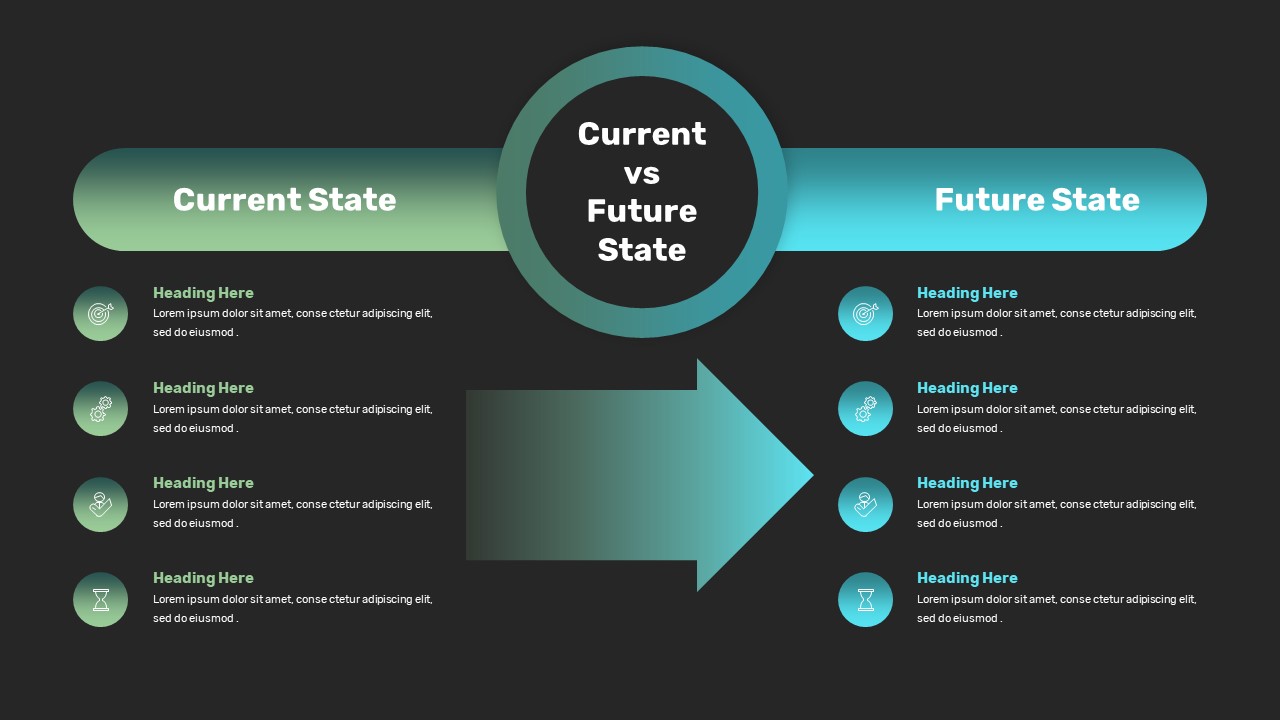Apple's AI: Current Status And Future Predictions

Table of Contents
Apple's Current AI Landscape
Apple's AI isn't a single product; it's a woven tapestry of technologies powering many aspects of the Apple ecosystem. This section will delve into the existing AI technologies and their real-world applications.
Siri's Evolution
Siri, Apple's virtual assistant, has undergone significant evolution since its inception. Its natural language processing capabilities have drastically improved, leading to better voice recognition and contextual understanding.
- Improved voice recognition: Siri now boasts significantly improved accuracy in understanding different accents and dialects.
- Contextual understanding: Siri can better understand the context of conversations, remembering previous interactions and providing more relevant responses.
- Proactive suggestions: Siri proactively offers helpful suggestions based on user behavior and calendar events.
- Limitations in complex tasks: While improved, Siri still struggles with complex, multi-step requests or nuanced instructions.
- Third-party app integration: Siri's integration with third-party apps remains a work in progress, with varying levels of support across different applications.
Siri's continued development in natural language processing is crucial for its future as a leading AI assistant, competing with Google Assistant and Amazon Alexa. The seamless integration of Siri with other Apple services like Messages, Calendar, and Maps enhances its overall utility.
On-Device AI and Privacy
Apple has prioritized on-device AI processing, a strategic decision that significantly impacts user privacy. This approach contrasts with cloud-based AI models used by competitors.
- Differential Privacy: Apple employs differential privacy techniques to minimize the risk of identifying individual users during the training of machine learning models.
- Federated Learning: Federated learning allows Apple to train models using data from many devices without directly accessing that data, enhancing privacy.
- Trade-offs between privacy and performance: On-device processing may sometimes result in slightly reduced performance compared to cloud-based AI, but this trade-off is considered acceptable for the enhanced privacy.
- Impact on machine learning model training: The data used to train Apple's machine learning models is limited by privacy considerations, requiring innovative approaches to model development.
Apple's commitment to on-device AI and privacy-preserving AI is a key differentiator in the competitive landscape, appealing to users concerned about data security.
AI in Hardware and Software
Apple's AI is not just in software; it's deeply embedded in its hardware as well. The synergy between hardware and software is critical to Apple's AI strategy.
- Image processing algorithms: Sophisticated AI algorithms power the image processing capabilities of iPhones, enabling features like portrait mode and advanced computational photography.
- Neural Engine: The Neural Engine, a dedicated hardware component in Apple's M-series chips, accelerates machine learning tasks, improving performance and responsiveness.
- Machine learning accelerators: These specialized processors are crucial for handling the demanding computational requirements of advanced AI algorithms.
- Smart features in iOS and macOS: AI powers many features across iOS and macOS, from predictive text and intelligent suggestions to smart search and personalized recommendations.
The integration of AI within Apple's hardware, like the Neural Engine within the M-series chip, provides a powerful foundation for future AI advancements and sets Apple apart in the mobile computing space.
Future Predictions for Apple's AI
Looking ahead, Apple's AI trajectory seems bright, with significant potential for growth and expansion. This section explores potential future developments.
Enhanced Siri Capabilities
Siri is poised for substantial improvements in its conversational AI capabilities.
- Improved contextual awareness: Siri will become even more adept at understanding context and user intent, enabling more natural and intuitive interactions.
- Personalized experiences: Siri will personalize responses and suggestions based on individual user profiles and preferences.
- Integration with augmented reality (AR): Integrating Siri with AR could create more immersive and interactive experiences, opening up new possibilities for AI-powered applications.
- Proactive problem solving: Siri might anticipate user needs and proactively offer solutions, reducing the need for explicit requests.
These enhancements to Siri's capabilities will further solidify its position as a leading AI assistant and enhance the overall user experience.
Expansion into New AI Domains
Apple's AI expertise could extend into various new areas.
- AI in healthcare: Apple could leverage its AI capabilities to develop innovative health monitoring applications and contribute to advancements in personalized medicine.
- Potential for Apple Car development: An Apple Car, powered by advanced AI-driven autonomous driving technology, is a highly anticipated possibility.
- AI-powered home automation: Apple's AI could be more deeply integrated into the smart home ecosystem, creating a more seamless and intelligent home experience.
- Collaborative robotics: AI-powered robotics could be a future area of expansion, potentially leading to innovative applications in various industries.
The expansion of Apple's AI into diverse domains will showcase its versatility and reinforce its position as a technology leader.
Competition and Market Domination
Apple faces stiff competition in the AI market from giants like Google, Amazon, and Microsoft.
- Competition with Google, Amazon, and Microsoft: These companies have already established strong footholds in the AI market with their own AI assistants and cloud-based AI services.
- Focus on user experience and privacy: Apple's strategic focus on user experience and privacy could be a crucial competitive advantage in the long term.
- Potential for acquisitions and partnerships: Strategic acquisitions and partnerships could accelerate Apple's AI development and expand its reach into new markets.
Maintaining a competitive edge will require continuous innovation and a strategic focus on user needs and preferences.
Conclusion
Apple's AI strategy, though less publicized than some competitors, is deeply impactful and poised for significant growth. From Siri's continuous improvements to the underlying AI powering its hardware and software, Apple is strategically building a comprehensive AI ecosystem. Future predictions point towards even more integrated and personalized experiences, potentially expanding into new and innovative areas. Staying informed about the evolution of Apple's AI is crucial for understanding the future of technology. Keep up with the latest developments in Apple's AI to stay ahead of the curve.

Featured Posts
-
 Androids Redesigned Interface A Challenge To I Phones Popularity With Gen Z
May 10, 2025
Androids Redesigned Interface A Challenge To I Phones Popularity With Gen Z
May 10, 2025 -
 Apple And Ai A Competitive Analysis
May 10, 2025
Apple And Ai A Competitive Analysis
May 10, 2025 -
 Metas 168 Million Loss A Turning Point In Whats App Security
May 10, 2025
Metas 168 Million Loss A Turning Point In Whats App Security
May 10, 2025 -
 Disaster Betting The Los Angeles Wildfire Example
May 10, 2025
Disaster Betting The Los Angeles Wildfire Example
May 10, 2025 -
 Measles Outbreak Prompts School Quarantine In North Dakota Unvaccinated Children Affected
May 10, 2025
Measles Outbreak Prompts School Quarantine In North Dakota Unvaccinated Children Affected
May 10, 2025
